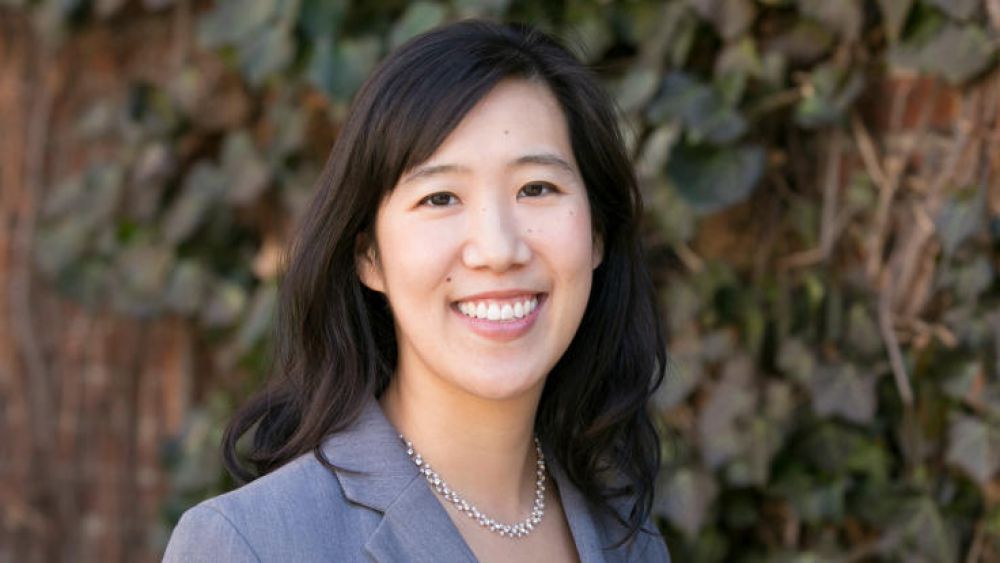Author was once kicked out of Elon Musk's office but talked way back in

You’re finally getting to meet Elon Musk – and he doesn’t want to see you.
Author of Edge – Turning Adversity into Advantage Laura Huang had this happen to her.
The associate professor had been in Elon Musk’s office less than 30 seconds when Elon said "No, get out of my office" with no explanation. Laura and her colleague were being kicked out – yet she found herself laughing in surprise. Elon Musk then began laughing with her, and they then spent more than an hour discussing her research into private space travel.
Laura says Elon Musk probably thought she and her colleague were pitching him a product, not there to discuss research.
Luckily, Musk's decision to kick Laura out was overturned with laughter and an explanation.
It's a great example of the key concept in Edge:
Perceptions drive the attributions that people make, which in turn drive decisions.
Laura Huang says people generally underestimate how hard it is to get your foot in the door as an outsider, and how wide those same doors are open once you’re inside.
Key Concepts in Edge:
Social skills matter. There’s a premium on those who are skilled in coordination, negotiation, persuasion, and social perceptiveness.
Perceptions drive the attributions that people make, which in turn drive decisions.
Start with pinpointing your basic goods (your history and your story) and defining your circle of competence and operating inside that perimeter.
4 concepts that give you the “edge”:
- Enrich
- Delight
- Guide
- Effort
ENRICH: Bring value and convince others of it. It’s about the few things that “make you singular.”
- Recognise that you can start where it’s less crowded.
- Acknowledge that it takes time to get good at anything
- Know that your basic goods and your perspective matter.
DELIGHT: You are more likely to be viewed as competent and attributed higher status if you can land a joke. Delight is not flattery. It can be humour that gives you an opening to demonstrate other ways you can enrich. Give yourself permission to demonstrate your own personality. Delighting requires you to have an opinion or point of view.
Delighting when pitching a product or service:
• Being too prepared immobilizes you.
• No pitch should be longer than one minute.
• Pitching is to start a conversation.
• Before important phone calls, write down 2-3 bullet points and improvise in an elegant way.
GUIDE: It is inevitable that we will be affected by how other people perceive us when we are merely trying to “be ourselves.”
Instead of addressing bias directly, guide others to attributions you want them to make about you. Then you won’t have to be at the mercy of their stereotypes.
- Compare yourself with yourself, not with others
- Remember that life rhymes. Look out for situations in your life that seem to repeat themselves.
- As you pick up on these patterns, go towards something that feels right - your “right directions.”
- Explain where you’re going in a way that guides others to understand your value. Anchor them at a point you dictate. If you don’t provide your own chronicle of who you are, one will be given to you.
EFFORT: Where you put in your effort makes a difference. We need "hard work, plus." Focusing on effort at the exclusion of enriching, delighting and guiding will make you bitter. The secret is to know that the deck is stacked, and that life’s not fair. But you put in the hard work plus regardless.
Effort reinforces your edge. It’s the mental toughness that underlies all of this, and that toughness provides an inoculation against the disappointments that we will all face because we remain at the mercy of others.
Members can access the full interview with Laura Huang, author of Edge - Turning Adversity into Advantage, at The Growth Faculty - On Demand by logging on and clicking on the interview.
If you would like to become a member of The Growth Faculty, and be eligible for free masterclasses and discounts to our live and virtual events, click here.


 Australia
Australia
 European Union
European Union
 New Zealand
New Zealand
 United Kingdom
United Kingdom
 United States
United States
 Singapore
Singapore

